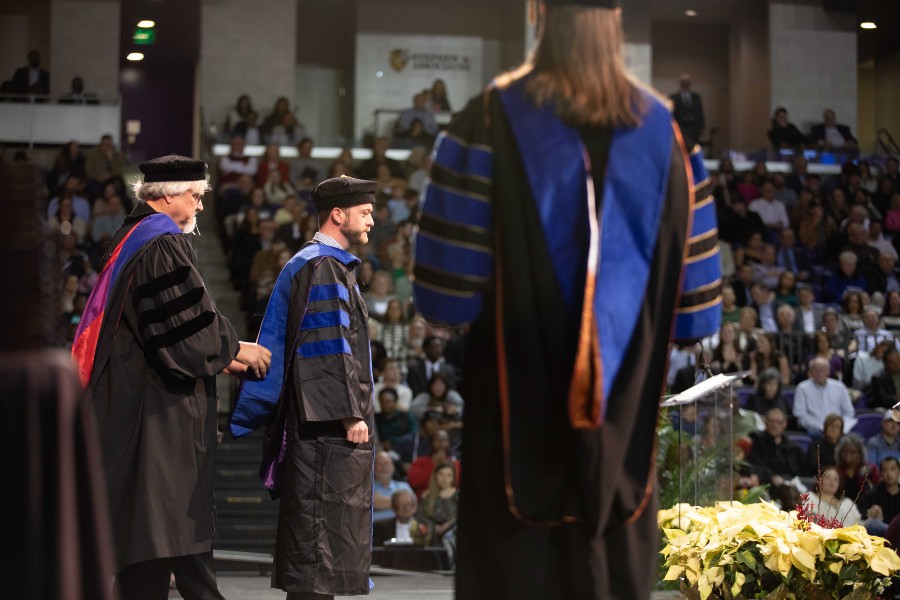New Ph.D. in leadership and policy marks first year
Doctorate program is opening doors to more research opportunities for students and for Lipscomb.
Janel Shoun-Smith | 615-966-7078 |

The first 13 students in Lipscomb’s new Doctor of Philosophy in leadership and policy began their studies in August 2023.
The fifth doctorate started in Lipscomb’s history, the new Ph.D.’s curriculum allows students’ knowledge and skills to be applied to various fields such as education, public service, health care or public policy leadership.
Not only does this 63-hour, three-year program prepare students for high-level careers in leadership and service across a range of sectors, but it also helps prepare Lipscomb itself to continue to grow doctoral education and research activities into various academic disciplines in the future, said Associate Provost for Research and Graduate Studies Trace Hebert.
“The Ph.D. is comprised of a set of core courses that can be used by any of Lipscomb’s colleges. Then colleges can also offer a set of guided electives specific to their academic discipline. This allows them to develop their own Ph.D. cohort in an efficient way.” said Hebert. “Once they have developed critical mass, the college could potentially develop its own stand-alone doctorate.”
“This approach is starting new conversations among various departments on campus; conversations that are helping the doctoral world grow at Lipscomb,” he said.
Dr. Candice McQueen (BS ’96) and Hebert began to vision the new Ph.D. not long after McQueen’s arrival as president and it was determined that the College of Education was the best suited to host host the degree; however, the umbrella is larger than just education, said Hebert. Potential students work in a variety of sectors including education, public service, health care, as well as for-profit and nonprofit organizations.
The skills taught in the program include the ability to organize substantial amounts of information, research subjects broadly, independently manage and complete in-depth projects and to adapt to changing environments. These skills can fuel graduates’ work in various areas of leadership.
Debi Rutledge, dean of retention and engagement at Rochester University, in Michigan, enrolled in Lipscomb’s program as a way to not only gain the skills to carry out higher-level research to address her institution’s challenges, but to also expand her “general knowledge pertaining to leadership and policy regarding students, as well as knowledge specific to the issues I am working with every day,” she said.
“There is a high level of expectation in terms of engagement and quality of work, but that expectation is maintained amidst an environment of support from faculty and peers,” said Rutledge, who attends the course via the online distance learning option. “Even attending virtually, while most of my peers are in person, the peer support network has been invaluable already.
“It has definitely driven me forward and has already raised the level of work that I am doing on a day-to-day basis,” she said.
Unlike Lipscomb’s existing doctorate programs – Pharm.D., Ed.D., D. Min. and PH.D. in archeology – the Ph.D. in leadership and policy appeals to a broader range of potential students, said Hebert. The interdisciplinary nature of the program is one that students are looking for in the market, and unlike the existing Ed.D. program, which uses collaborative dissertation work, the Ph.D. program allows students the flexibility to customize their dissertation research to a subject area they are passionate about.
In addition, enrolled doctoral students may earn a Master of Science in leadership and policy along the way and the bachelor’s-to-Ph.D. route is also available for graduating seniors who meet the program’s admission criteria.
“This is an exciting addition to our robust academic offerings,” said Lipscomb Provost Jennifer Shewmaker. “Adding a second Doctorate of Philosophy program elevates the academic profile of our university while giving students a challenging and fulfilling academic experience that equips them with the tools and experiences to make a difference in the world around them.”